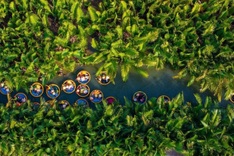>> Can Tho ornamental trees symbolise Tet
>> Giant pottery products ready for Tet
Spending billions of VND on luxurious, decorative stones and ornate sculptures for Tet is gaining in popularity.
Like Bonsai, the art of ornamental stones selection originates in China, but has found revived life in Vietnamese culture. The shape of these rocks makes them feel closer to nature and provides a little respite from the bustle of modern life.
The traditional criteria of a good quality ornamental stone requires that it be thin but solid, with plenty of ridges and grooves, that it be asymmetrical and contain small caves or holes.
Although selecting a stone may not take as much time as growing bonsai or breeding birds, many are attracted to them for their intricate beauty, which takes time to be fully appreciated.
Selecting the right stone is not an easy task. ‘Stone hunters’ may see hundreds of stones without finding one suitable for decorative purposes. Sometimes a stone may be overlooked, its latent beauty becoming apparent only months later. Connoisseurs always respect natural forms, preferring them to those that have been artificially shaped.
The following are photos from the collection of a very valuable collection of stone pictures:

“Carp in the waves”: VND1.5 billion (USD75,000)
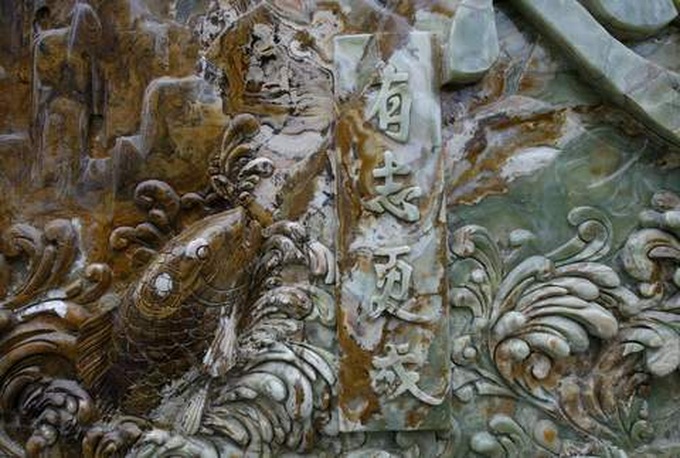
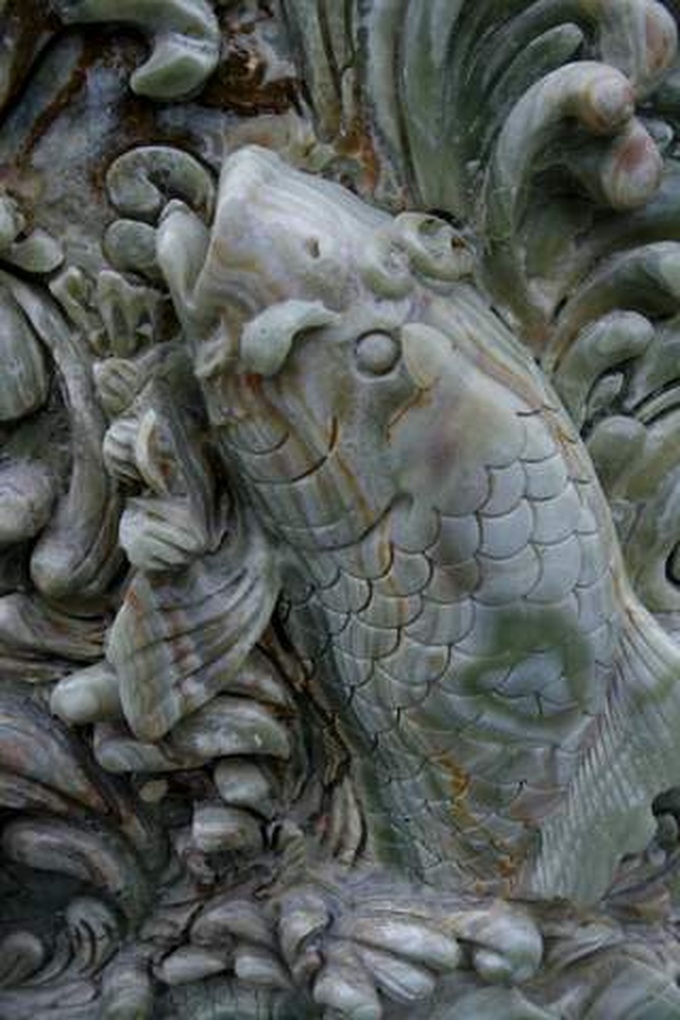


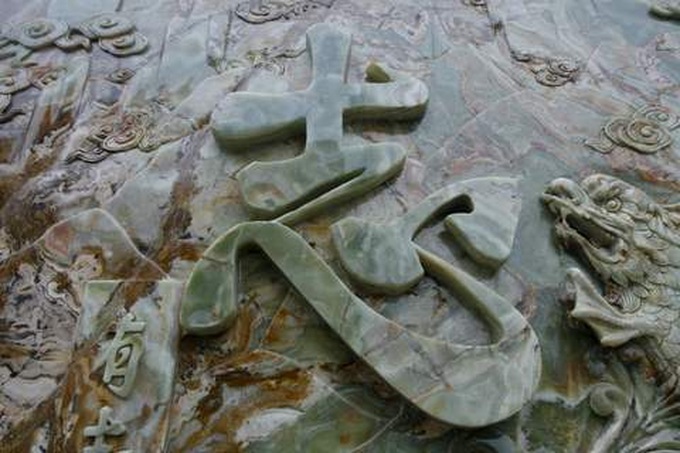
“Carp in the waves” was crafted from imported Onyx stone
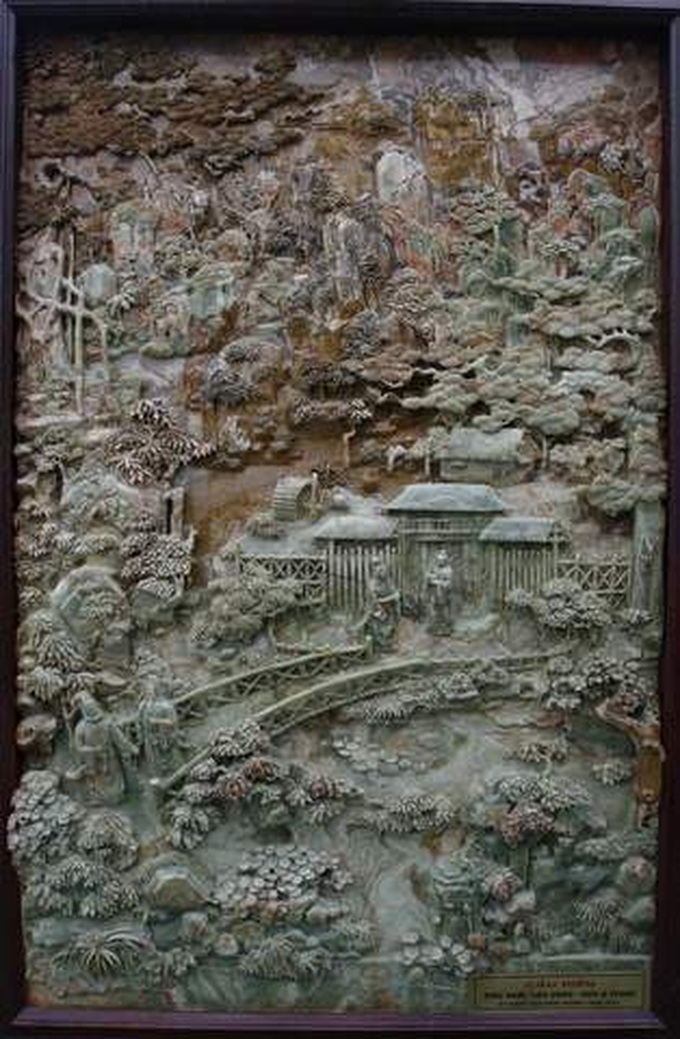
Sculpture of the bridge: VND1.8 billion (USD90,000), (the most expensive in the collection)
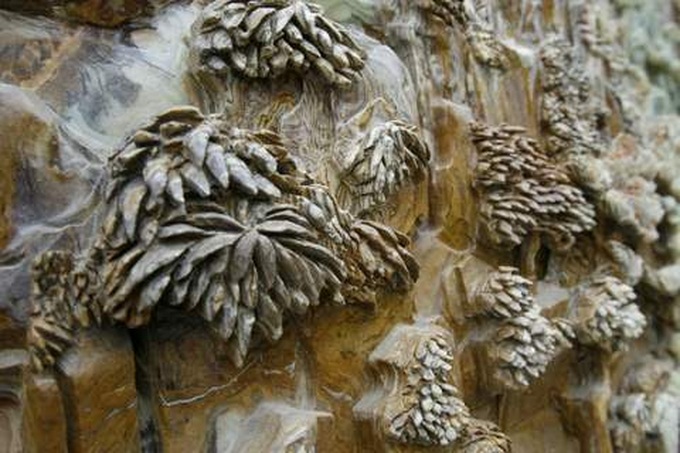


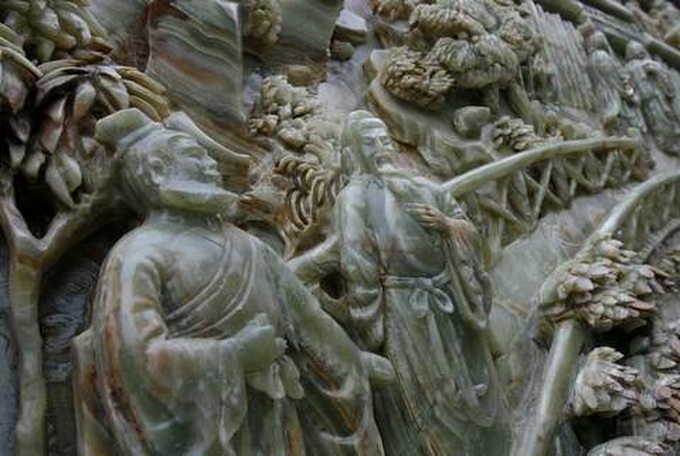
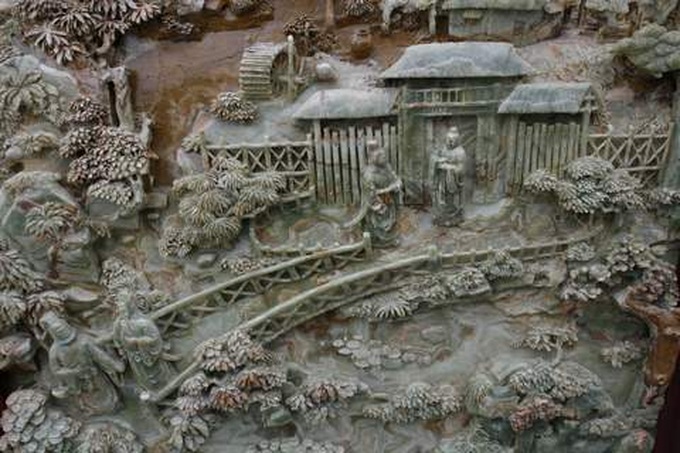
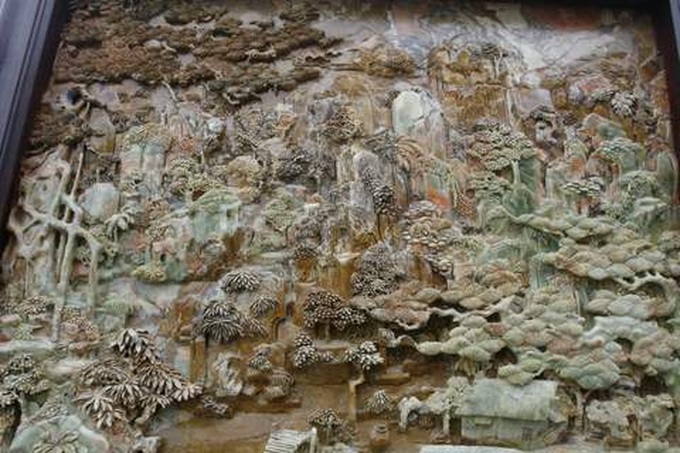
Very detailed carving
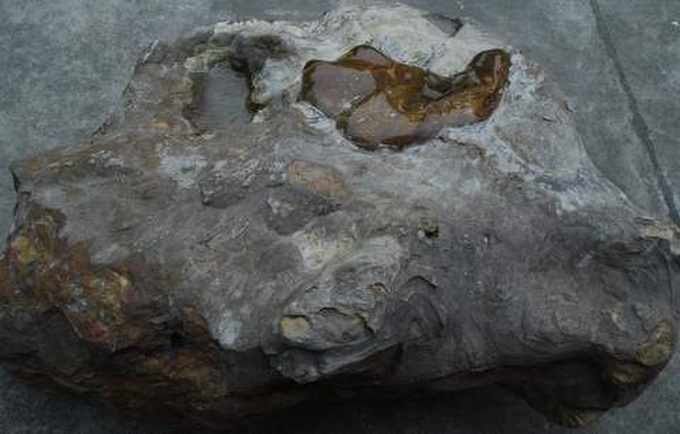
An agate monolith, weighs 1.4 tonnes: VND300 million (USD15,000)
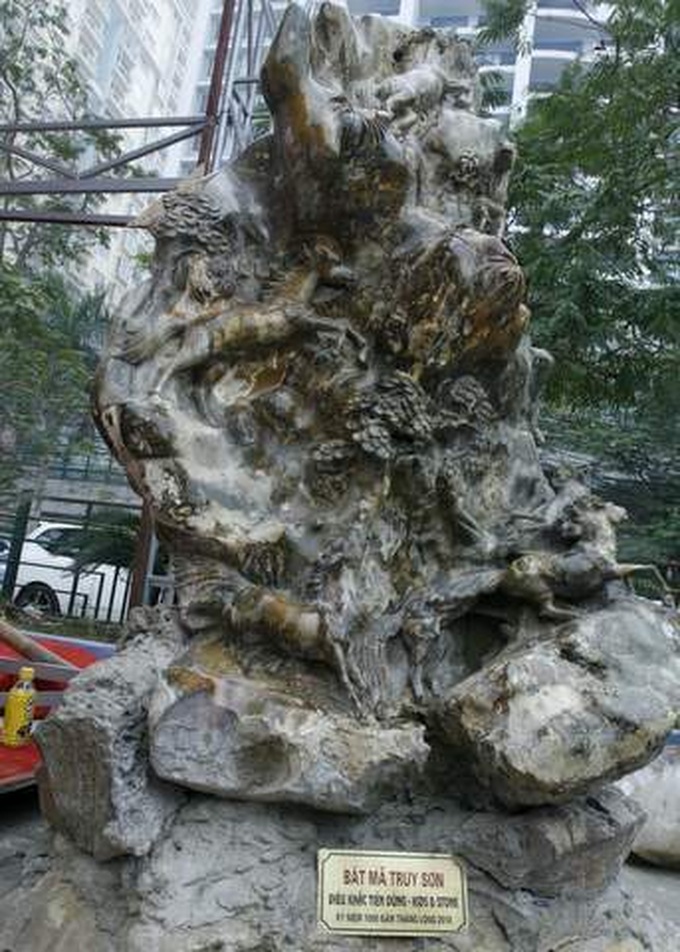
Eight stone horses: VND1 billion (USD50,000)
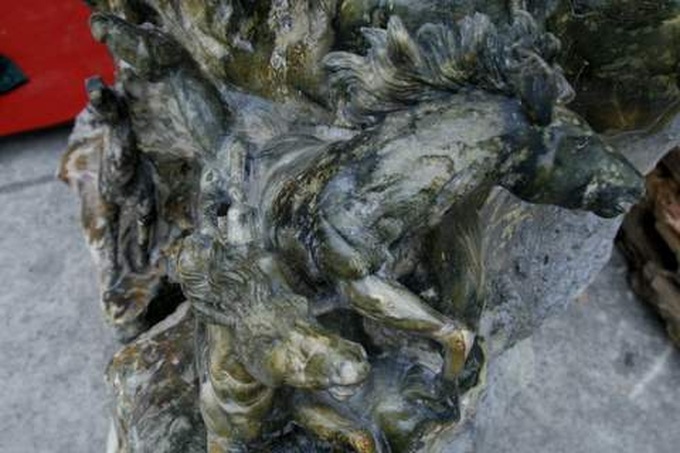

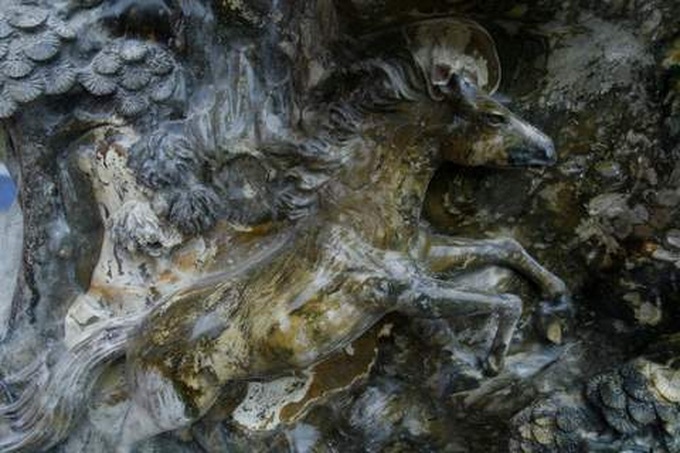

These sculptures are made from Canxedol, and can take up to a year to complete
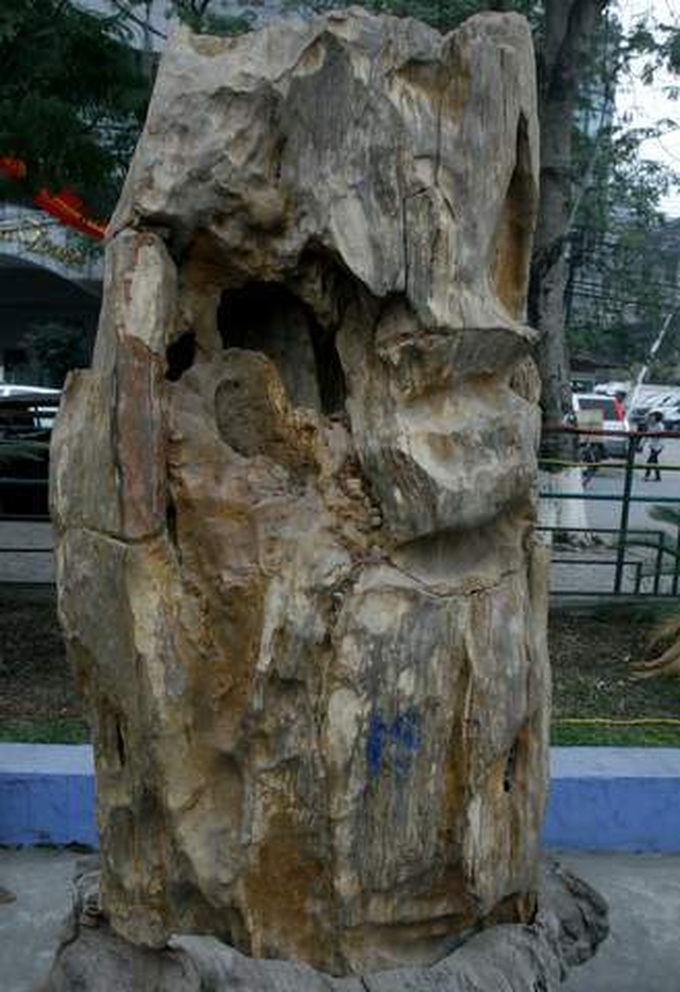
Petrified wood: VND600 million (USD30,000)


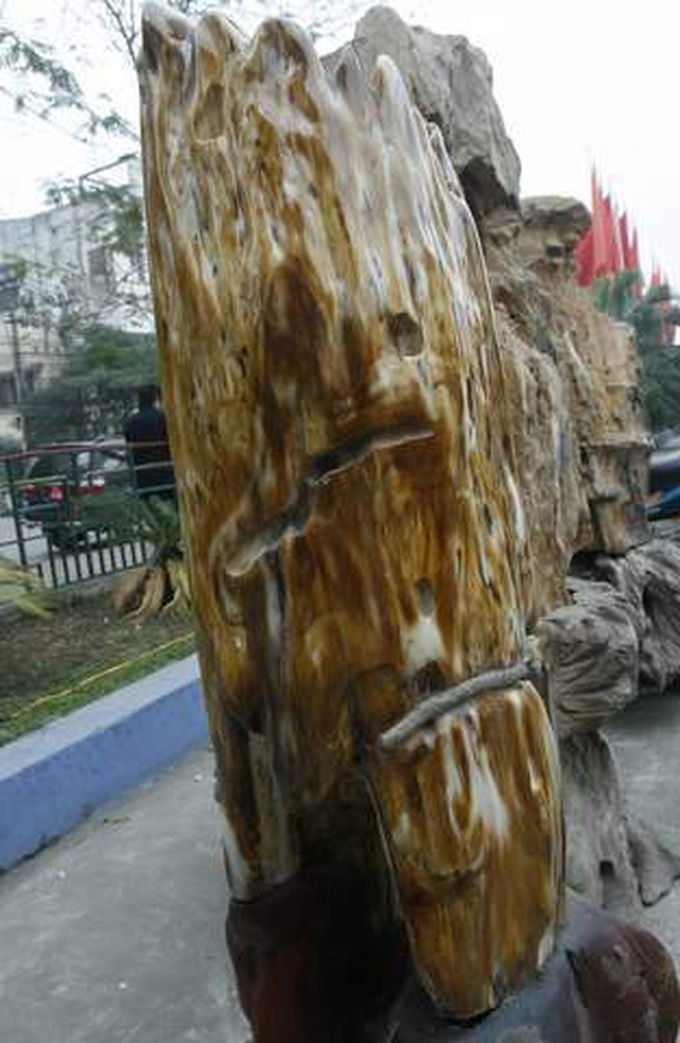
Petrified wood of different varieties
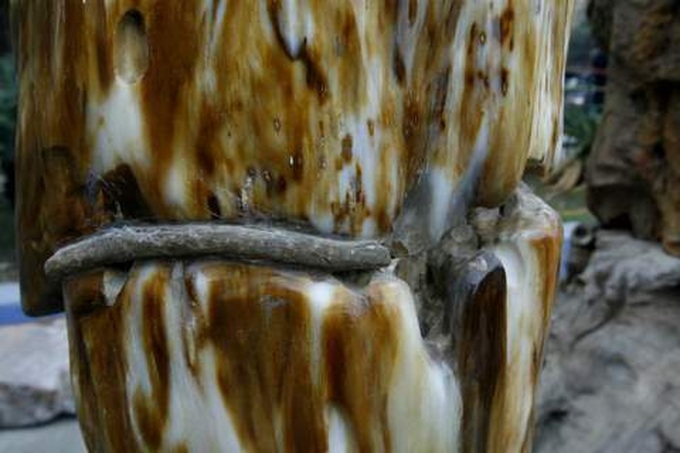

Petrified wood: USD20,000


















